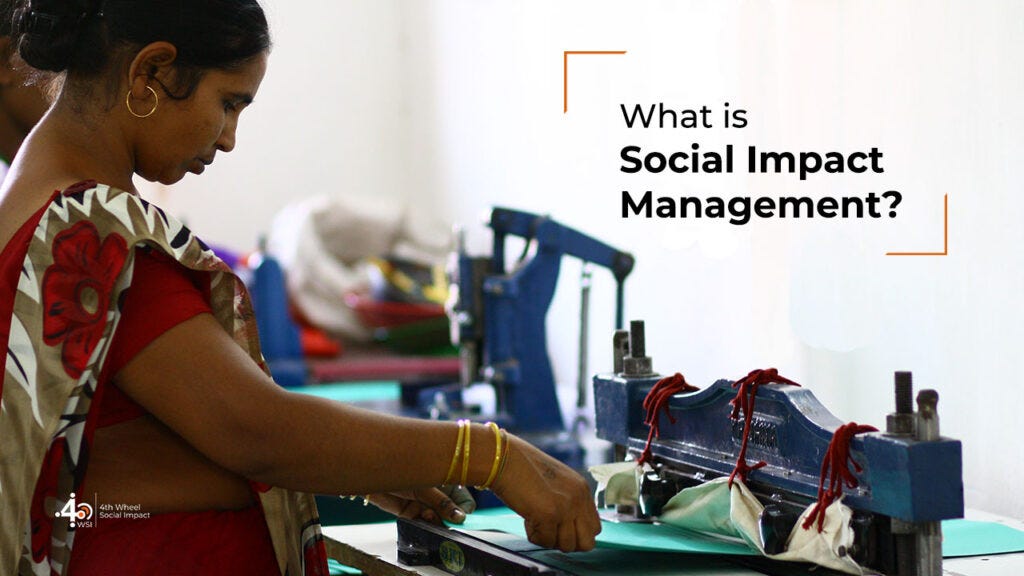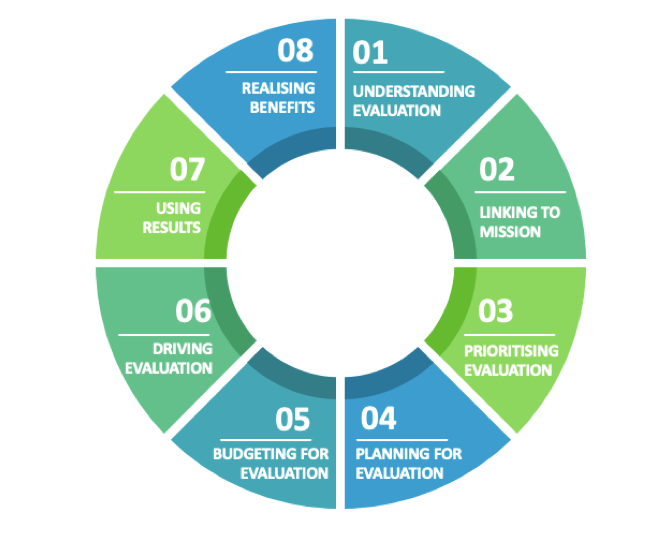What is Social Impact Management?
Social Impact management is an ongoing practice of measuring and improving social investment outcomes, to reduce negative and increase positive impacts of an organisation’s activities. It moves beyond impact measurement as an ‘after thought’ to measure successes of program implementation, and recognises that ‘effective impact measurement is an ongoing process’.
Social Impact Management enables organisations to answer two very pertinent questions:
To what extent are we making a difference?
How can we do better?
Organisations should adhere to 8 critical steps to build managerial systems which support Social Impact Management of their development assistance programmes.
Understanding Evaluation: Organisations should invest in incorporating social impact management in their operations. They must build the capacities of staff to understand facets of impact management and move beyond just impact measurement. Evaluation should be viewed within the Results-based Management framework, outlining the key activities, and their relation to estimated impacts.
Linking to Mission: Organisations should develop a ‘Theory of Change’ at an organisational and programmatic level to build a conceptual framework that will drive interventions, ensuring maximum impacts of impact investments and leading to the more effective social responsibility of business.
Prioritising Evaluation: There is a need for organisations to build an evaluative organisational culture where all cadre of staff understand expected impacts, recognise contextual realities, and have a plan for success. Organisations need to enhance their team’s readiness and competence to undertake impact evaluations.
We are hosting a virtual masterclass with our partner Csrbox on Impact Assessment of Covid-19 relief and rehabilitation programs.
If you have any questions you can post them here and in every newsletter we will take up a few questions to answer.





